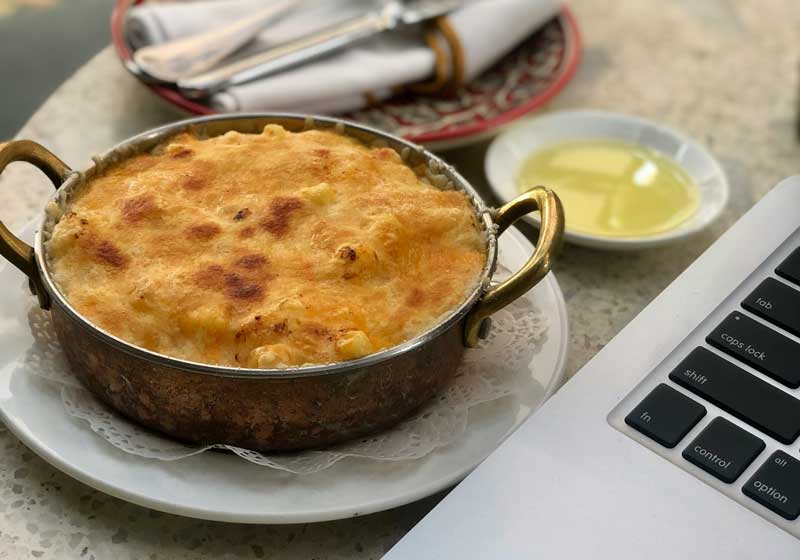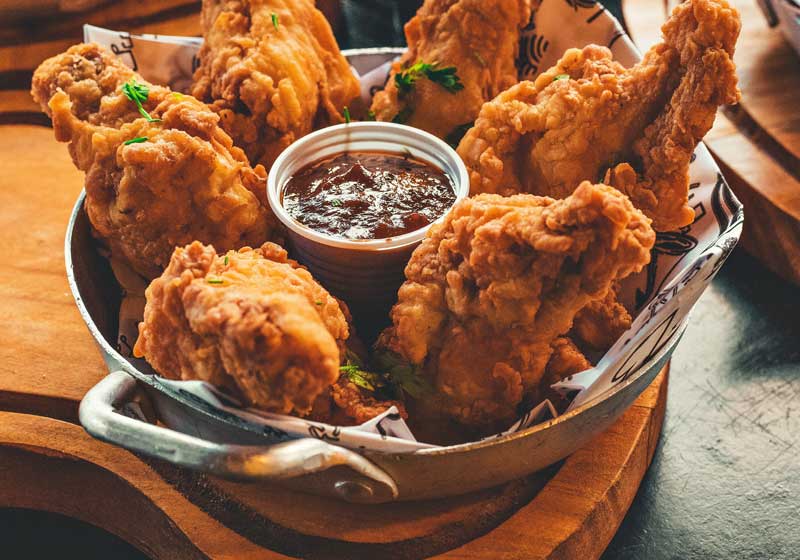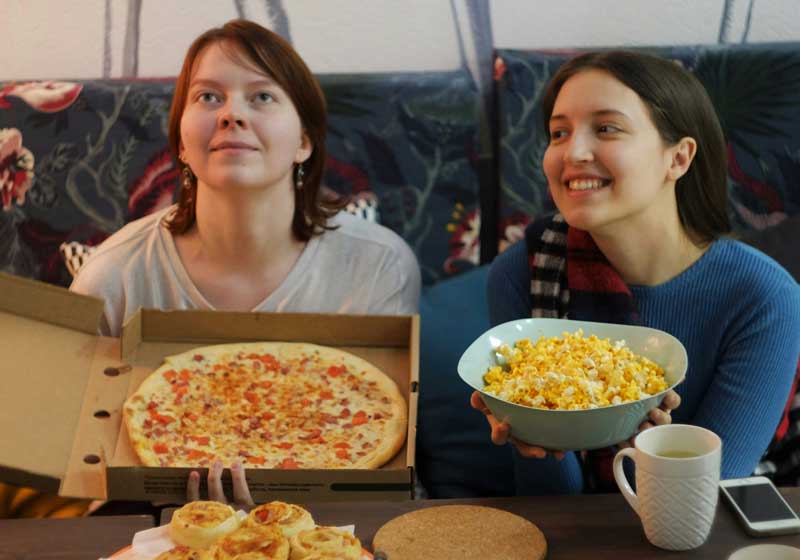By Marie-Antoinette Issa.
Hearty bowls of mac and cheese, fried chicken and warm slices of cornbread make American ‘Soul Food’ worthy of its own genre. The truth is ‘food for the soul’ transcends place - and plate.
Here, nutritionist Solaine Douglas discusses the complexities behind comfort eating and why ‘Chicken Soup for the Soul’ isn’t the only place you’ll find it!

"Food is inherently part of festivities, families and the feelings associated with them,” says Solaine. "Most of us have had experiences from childhood of food being used as reward, relief and sadly even punishment. All these little exchanges add up to create strong emotional habits around eating.”
This phenomenon, also known as emotional eating, is deeply rooted in a complex interplay between biology, psychology, culture and society. Exploring the cognitive behaviours behind comfort eating (the interplay between our thoughts, beliefs, perceptions of food and our actions, reactions and responses to it) unveils the intricacies at play when we seek solace in a bowl of something sweet…or salty!
"Comfort eating involves consuming food not just to satisfy physical hunger but to alleviate negative emotions or enhance positive ones,” says Solaine. After all, what’s a birthday party without a decadent cake!

Similarly, "when you feel emotionally triggered or stressed, it can be automatic to turn to the foods that give you something that allows you to ‘tune out’ what you don't want to feel,” she adds.
While the process that triggers pleasure centres in the brain through food can provide temporary relief from emotional distress, "usually, these meals are high in sugar or highly processed,” says Solaine. "If this is happening often enough, it can begin to impact your physical and mental health.”
Child’s play:
One of the key psychological drivers of comfort eating is the association between food and emotional experiences formed during childhood. From infancy, we learn to align feeding with comfort and security, as caregivers nourish and soothe us with food. These early experiences create powerful neural connections between food and positive emotions, shaping our relationship with what we eat throughout life.

"As adults, we may continue to instinctively seek out familiar comfort foods when faced with stress or anxiety. Hoping to recreate the feelings of security and contentment from our childhood,” says Solaine.
A food for every mood:
Comfort eating into adulthood often serves as a coping mechanism for managing negative emotions, offering a temporary distraction from life's challenges.
When we feel stressed, lonely or overwhelmed, indulging in comfort foods can provide a momentary escape - offering a sense of control and comfort in the face of adversity. The act of eating triggers the release of neurotransmitters such as dopamine and serotonin, which are associated with pleasure and relaxation, further reinforcing the association between food and emotional well-being.

"As an example, someone with a stressful job may also use a default comfort food to cope with their emotions - such as a block of chocolate while watching Netflix each night,” says Solaine.
Culture club:
In addition to its biological and psychological roots, comfort eating is also influenced by cultural and social factors that shape our food preferences and eating behaviours. Ethnic traditions, family customs and societal norms all play a role in determining which foods are perceived as comforting and acceptable for emotional consumption.
"For example, in many Western cultures, indulgent treats like ice cream, chocolate and baked goods are commonly associated with comfort eating. While in other cultures, savoury dishes or herbal teas may fulfil this role,” says Solaine.
Marketing on the menu:
Finally, according to Solaine, the omnipresence of food marketing and media portrayals of comfort eating contribute to its normalisation and widespread acceptance.
"Advertisements often depict food as a source of comfort, happiness and indulgence, reinforcing the notion that emotional eating is a socially acceptable behaviour.

"Similarly, popular culture frequently glamorises the consumption of comfort foods in movies, television shows and social media, perpetuating the myth that food can heal emotional wounds.”
Despite its temporary alleviation of distress (tucking into an occasional bowl of ice cream after a long day of work is one we heartily encourage, judgment-free!) Solaine says that comfort eating can have negative consequences for both physical and mental health if we continue to indulge in not-so-wholesome options.
"It's important to have awareness around your triggers and automated comfort food habits. When you are aware of your emotions, you can work on processing them. When you feel good, you are more likely to want to eat the foods that make you continue to feel good.”

"For example, one of the core things I recommend focusing on is regulating blood sugars. This can be achieved in a matter of days, just through making a few simple swaps like having enough protein, fibre and fat with each meal and having coffee after breakfast. It's a lot easier to think through your food choices and reduce your comfort eating when your blood sugar is balanced because you feel more stable.”
When it all boils (or deep-fries!) down to it, comfort eating is a multifaceted phenomenon driven by biological, psychological, cultural and social factors. While seeking solace in food is a natural and universal impulse, it is essential to recognise the complex interplay between emotions and eating behaviours.
By exploring the roots of comfort eating and cultivating self-awareness, individuals can empower themselves to make conscious choices that promote holistic well-being and emotional resilience. Ultimately, true comfort lies not in the fleeting pleasure of indulgent foods but in the deep connection between mind, body and soul.







